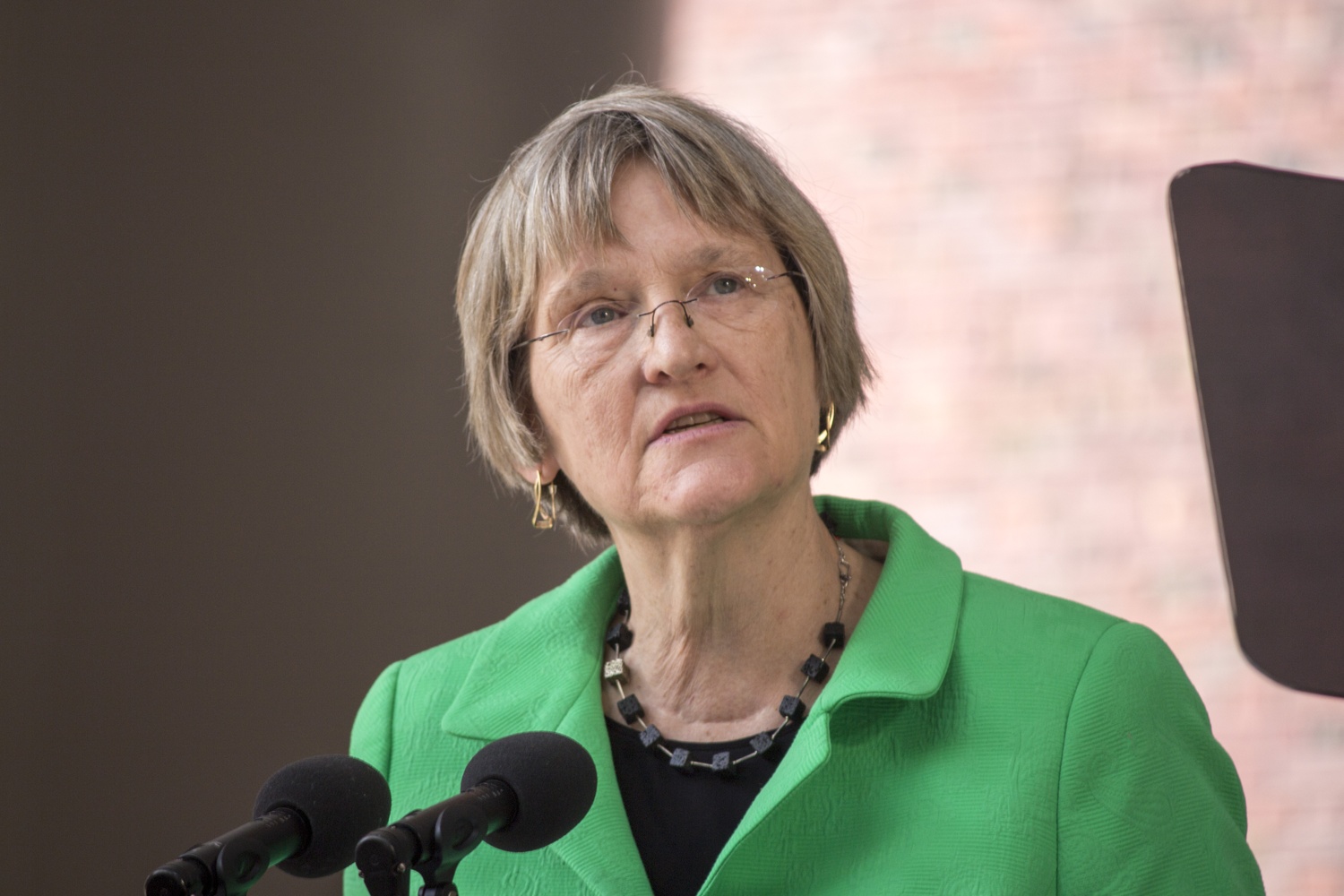
News
Harvard Grad Union Agrees To Bargain Without Ground Rules

News
Harvard Chabad Petitions to Change City Zoning Laws

News
Kestenbaum Files Opposition to Harvard’s Request for Documents

News
Harvard Agrees to a 1-Year $6 Million PILOT Agreement With the City of Cambridge

News
HUA Election Will Feature No Referenda or Survey Questions
Faust Calls For Character-Based Education in Commencement Address

University President Drew G. Faust outlined a vision for a university education that shapes a student’s character and values—not just their intellectual and professional development—in her annual Commencement address Thursday afternoon.
Speaking before thousands of new graduates and their families during the annual Afternoon Commencement exercises, Faust also decried the “tumultuous state of American politics,” and ticked through a list of world crises.
“It is as if we are being visited by the horsemen of the apocalypse, with war, famine, natural disaster, and yes, even pestilence,” Faust said.
Faust then turned to the role of the University in such a contentious global climate. Juxtaposing Tercentenary Theatre’s Widener Library—“a monument to reason and knowledge”—and Memorial Church, dedicated to the Harvard students who fought in World War I, Faust concluded that universities should seek to instill a sense of morality and responsibility in its students, not just a dedication to intellectual inquiry.
“With the rise of the research university in the late 19th and early 20th century, moral and ethical purposes came to be seen as at odds with the scientific thinking transforming higher education,” Faust said. “But in today’s world I believe it is dangerous for universities not to fully acknowledge and embrace their responsibilities to values and to service, as well as to reason and discovery.”
In addition to calling for a focus on the moral development of students, she advocated for crafting policies that reflect these goals.
“In myriad ways, we challenge our students to be individuals of character, as well as of learning,” she said. “We seek to establish standards for the college community that advance our institutional purposes and values.”
Faust’s decree that universities should shape their students’ values comes amidst a debate on campus over recently-announced sanctions for members of single-gender social organizations like final clubs, fraternities, and sororities. A number of critics, including a slate of professors and some alumni, have charged that the sanctions, which— beginning with the Class of 2021— will bar members of the organizations from holding leadership positions at the College or receiving fellowship endorsements, run counter to the aims of a liberal arts university.
Beyond emphasizing the importance of character cultivation in her 15 minute speech, Faust also criticized what she described as the increasing tendency to ignore the truth and the facts in contemporary discourse.
“These are the bedrock of education, and of an informed citizenry with a capacity to lead, to explore, to invent,” Faust said. “Yet this commitment to reason and truth, to their pursuit and preeminence, seems increasingly a minority viewpoint.”
Faust’s commencement address more explicitly laid out a vision for the University’s future than her speeches in recent years; in 2015, she warned against distrust in institutions, while in 2014, she put forth a case against sequestration and research spending cuts.
“Harvard is and must be a community of idealists,” she said.
—Staff writer Andrew M. Duehren can be reached at andy.duehren@thecrimson.com. Follow him on Twitter @aduehren.
—Staff writer Daphne C. Thompson can be reached at daphne.thompson@thecrimson.com. Follow her on Twitter @daphnectho.
Want to keep up with breaking news? Subscribe to our email newsletter.
Most Read
- Trump Administration Conditions Harvard’s Funding on Eliminating DEI, Restricting Protests
- Facing Trump’s Ultimatum, Harvard Has No Easy Choices
- Trump Admin’s $9 Billion Review of Harvard’s Grants Could Hit Boston’s Hospitals Hardest
- Harvard’s Hyperfixation on Israel Is Academically Unserious
- House Door Boxes Elicit Backlash Over Conservative Student Publication
